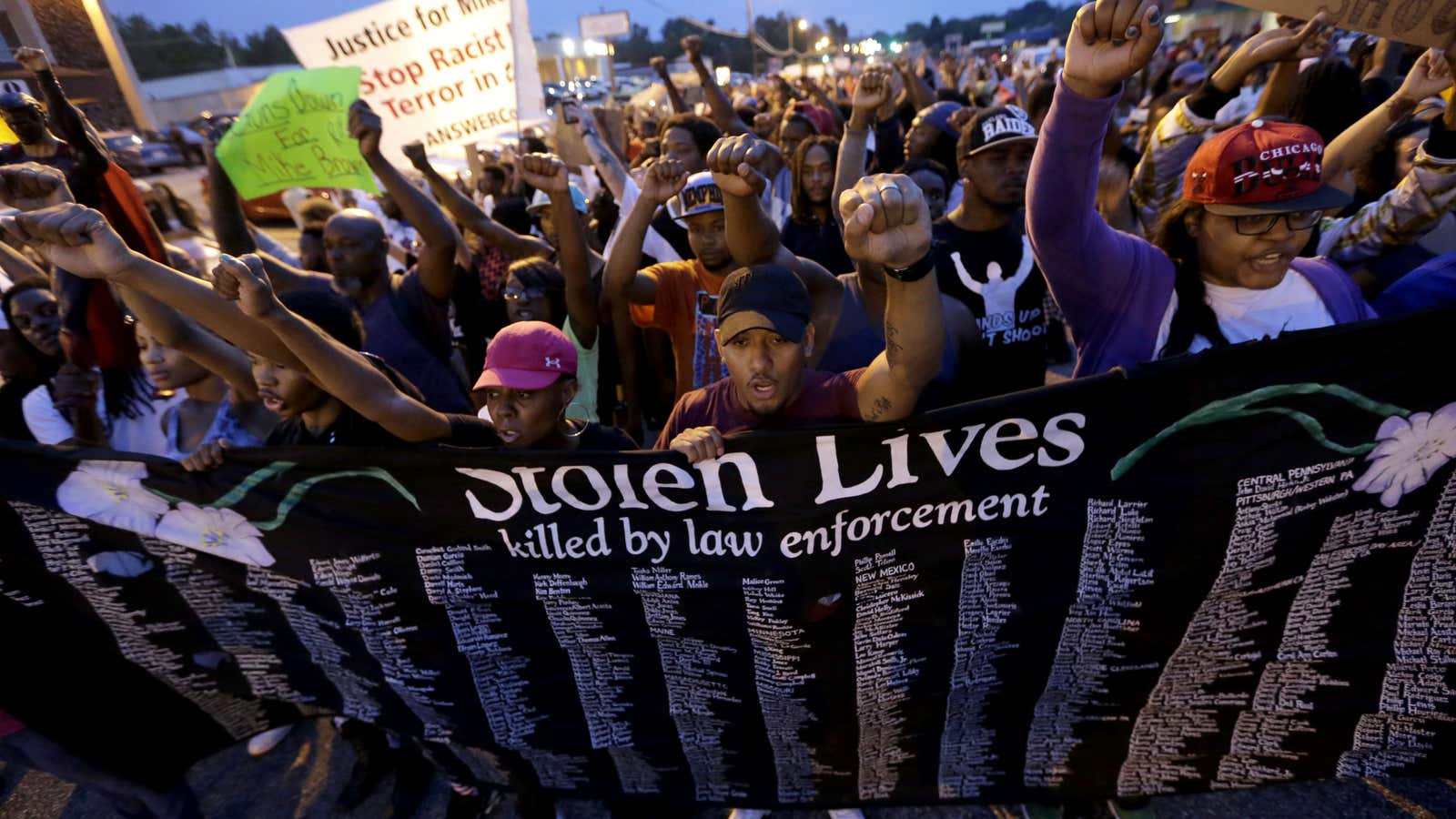As protesters took to the streets of Ferguson, Missouri following the shooting of unarmed teenager Michael Brown, one of their central demands was more equal representation in local government. Though more than two-thirds of Ferguson’s residents are African-American, 94% of the city’s police force is white. Only one of its six city council members is African-American.
Civil rights leader Al Sharpton addressed the city government’s skewed racial makeup in a speech at Brown’s funeral, calling on Ferguson residents to begin a movement that would “turn our chants into change, our demonstration into legislation.” That movement, he said, would begin at the ballot box.
Turns out, voter registration in Ferguson has jumped nearly 30% since Aug. 9, the day Brown was killed. Rita Days, director of the St. Louis County Board of Elections, told Reuters that nearly 3,300 Ferguson residents—out of a population of 21,000—had registered to vote between Aug. 9 and Sept. 30. There are three city council seats in Ferguson up for election next April.
“I believe people had something akin to an epiphany after Michael Brown,” John Gaskin III, spokesperson for the St. Louis County chapter of the National Association for the Advancement of Colored People (NAACP), tells Quartz. “People opened their eyes to what was happening in their local governments and thought, ‘This is what happens when I don’t make my voice heard.'”
Brown says African-Americans and people of color, both in St. Louis and nationally, “cannot afford to sit at home on Election Day.”
The NAACP is a national non-partisan organization, though most of its members identify with the Democratic Party. A Democrat has held the office of the St. Louis County chief executive, the most powerful elected position in the county that includes Ferguson, for the past 25 years.
However, the new surge of voters in Ferguson will not all benefit the Democratic Party. On Thursday, over 30 local Democratic elected officials from across the county announced a coalition that endorsed the opposition Republican candidate, Rick Stream, in next month’s election for chief executive. The Fannie Lou Hamer Coalition of St. Louis County, named after the iconic Mississippi civil rights leader, said in a statement that “after years and years of disrespect” by Democratic Party leaders, African American political leaders could no longer be “oblivious to the obvious.”
The move was met with bewilderment by both state and national Democrats, said Terry Wilson, president of a school board district that borders Ferguson and a member of the Hamer coalition.
“Ferguson was a turning point, a tragedy that brought about a civic revolution in the black community in this state and our votes will no longer be taken for granted,” Wilson tells Quartz. “A lot of people are educating themselves on their rights and they intend to vote, some for the first time, on election day.”
For Wilson, the coalition should be a wake-up call to national Democrats in Washington. “If Democrats here or anywhere are not going to listen to us [black communities], we’re not going to vote for you.”




